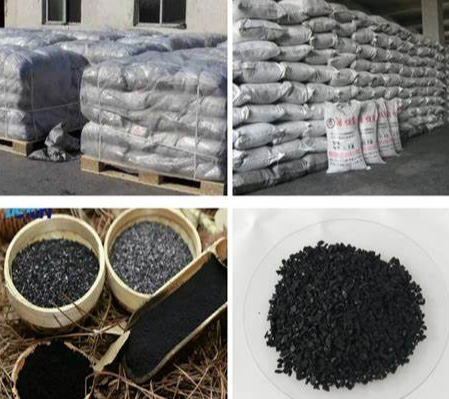
Industrial clients often buy calcined petrol coke (CPC), in large quantities, to be used as part of their manufacturing process. You can use it as graphite electro raw material or for iron risers and refractory materials in aluminum smelting. Also, it is used for the electro-refining process of aluminum as well as the productions of calcium carbide, silicon carbide or phosphoros. CPC comes from the coking of oil in refineries. The type of crude is used to determine the quality of the CPC.
The quality of CPC is defined by its sulfur content and trace metal levels which are determined by the coking process and the calcining process. It is the crude oil used in an oil refinery that has a significant impact on sulfur levels and trace metal levels of finished coke. A refinery that uses a heavier crude like Brent tends to produce more than one that runs a lighter oil blend such as WTI. This is because the higher sulphur levels of the heavier crudes require more resid in the delayed coker. Refineries are required to produce a larger volume of GPC using this heavier crude. However, quality tends to suffer, as there is more volatile matter, nitrogen, and other impurities.
The coke has to be heated between 1200°C and 150°C in order to get rid of the impurities. Great Lakes Carbon developed the first rotary kiln in 1935 for calcining GPC. Since then, this technology is used worldwide. Rotary calcining is a continuous process that takes place in a steel shell lined with refractory brick and can be 30-85 m long and 2.4-4.4 m wide.

In the end, the unburnt hydrocarbons in the exhaust gases are high. The concept for an advanced CHP was created to make the most of this potential fuel. This concept was designed and evaluated theoretically using an electrothermal liquidized bed calciner in which the process waste gas is used as a source of heat for calcining the coke.
Aluminium Smelter (Graphite Electrode Industry) and Calcined Petroleum Coke Industry (CPC) have tightened their Bulk Density specification in recent years. Following the discontinuation of mercury apparent-density testing due to environmental concerns, each Smelter now has their own CPC specification on a crushed/uncrushed bases. GOA CARBON LTD has tried to analyze various Bulk Density measurements on crushed/uncrushed basis and explore if there exists a correlation internally among all the densities, in particular with mercury apparent density.

Write a Message